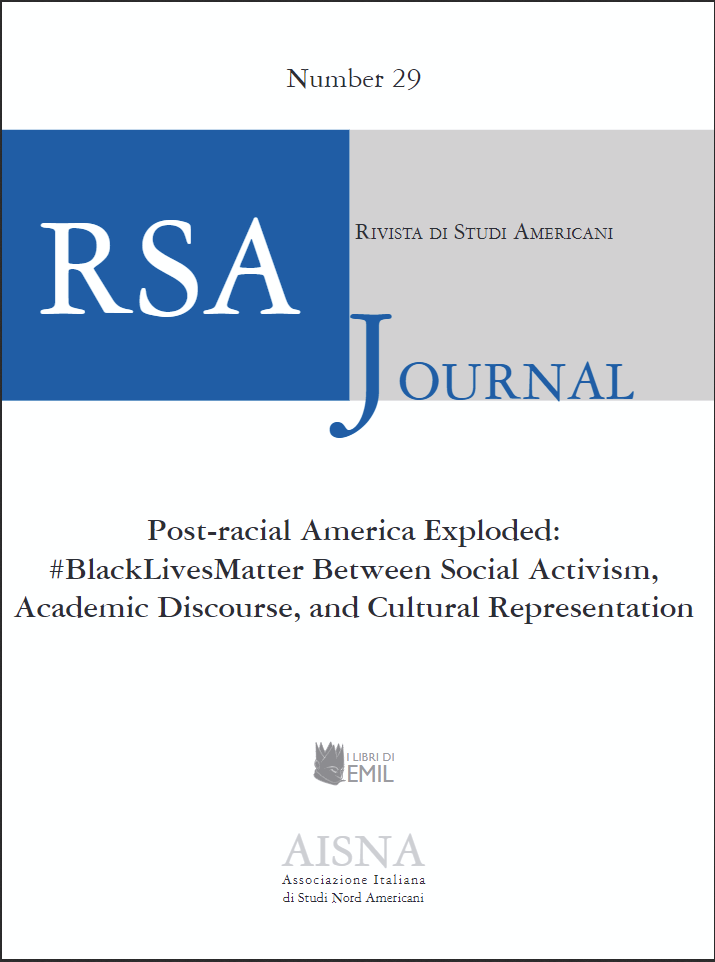Black Lives Matter in Wartime
DOI:
https://doi.org/10.13135/1592-4467/8533Keywords:
wartime, activism, police violence, BlackLivesMatterAbstract
The Black Lives Matter movement has been remarkably effective at mobilizing symbolic protest and policy proposals to render visible and interrupt the pervasive militarization of American society, exposing its intimate relationship to longer histories of structural racism and white supremacy. This essay distinguishes between militarist spectacles of police hardware and paramilitary SWAT raids and an uneven logic of militarization spanning the Reagan-era War on Drugs, domestic Pentagon arms transfers, and the wars in Iraq and Afghanistan. I read documentaries like Whose Streets?, Do Not Resist, and Stay Woke, activist memoirs and visual culture of the Ferguson protests through the ethical debate among activists, journalists and critical race theorists about the politics of representation in circulating videos of the police killings of Eric Garner, Alton Sterling or Orlando Castile. The Black Lives Matter movement has denaturalized
the spectacle of police violence against black bodies and re-embedded the stories of young black men killed by police and the activists who mourn and demonstrate into a counter-narrative of militarized occupation and protest. By doing so, I argue, the movement has intervened in the historical memory of America’s recent wars and challenged the embedding of military narratives and agendas within US institutions and civil society.
Downloads
Published
Issue
Section
License
RSAJournal will apply a CC BY 4.0 license to all its contributions starting with issue 37 (2026). Previous issues are licensed under a CC BY-NC-ND licence.





